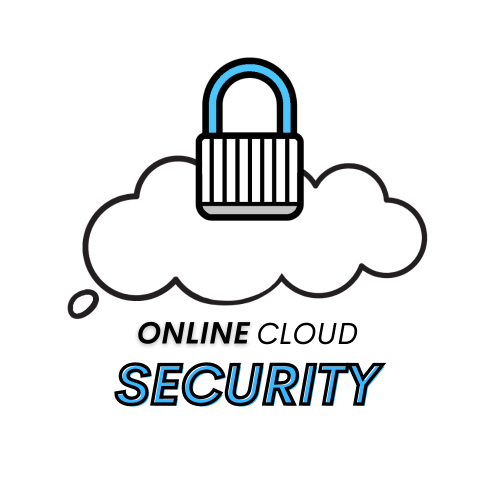
Dave Miller – Tech Enthusiast & Security Expert – June 24th, 2022

Norton by Symantec is now the most well-known antivirus brand, and hackers are taking advantage of this, as seen by the latest Norton Antivirus scam email incident. Email marketing is the most effective marketing medium, according to 29% of marketers.
As the holiday season arrives, you will begin to get a slew of discount offers, and your email inbox will get clogged with advertisements, receipts, and other stuff. As a result, hackers take advantage of the situation by sending fraudulent emails. The most recent scam emails involves using the name of a cyber security firm, in this case, it is Norton.
Continue reading to learn more about the phishing attempt you are aware of and what you can do to protect yourself.
Phishing is a big problem becoming more pervasive every year, with phishing emails accounting for more than a third of all security incidents. And according to a new study, 33% of emails employees receive are of phishing attempts that are either harmful or extremely questionable. Since cyber thieves are always looking for new methods to generate money. Deceiving people with phishing emails is a lucrative business for them. It is up to consumers to protect themselves.
Fact: According to the FBI, the amount of money stolen through phishing in the previous five years has totaled $12 billion.
People become victims when hackers transmit fake messages that appear to come from a trustworthy or authoritative source, primarily via email. These attacks have the same goal: steal sensitive financial data and personal information or even infect the victim’s computer with malware. So, what can you anticipate if you get one of these likely scam emails?

Symantec Corporation is the market leader, with more than 13.16 % of the antivirus market. Since 1991, Norton LifeLock has produced and sold Norton Antivirus and Protection software as part of its Norton range of computer security solutions. Their powerful products have evolved user device security and online privacy. 80 million active users now trust identity protection solutions with growing cyber threats needs. Because of Norton’s comprehensive protection strategy for its consumer areas, its products get used in more than 150 countries.
They send users emails or direct mail to keep them up to date on the newest Norton discounts, promotions, and product improvements. Norton Distributors may also send an email or mailings about various Norton product offers or promotions. Overall, all this gets done for either email marketing or just to provide an update regarding their products.
However, cybercriminals perceive an opportunity to make existing or new customers or even potential customers victims of phishing attacks. Using their excellent reputation, cyber attackers started sendingNorton Antivirus scam email to many users. They made them look like Norton was sending them.
Note: Apart from emails, you may receive fraudulent scam emails, SMS messages, and phone calls. Whether you use Norton or not, it’s a good idea to be aware of phishing emails and messages.
According to Norton, all of their official emails include branded Norton imagery, and no personal information from subscribers gets utilized to send these emails. As a result, Norton advises that you never email sensitive or private information to a sender or website you don’t know or trust.
Let’s take a look at the content of the Norton Antivirus phishing email. As many users have reported to the Federal Trade Commission. Users are receiving emails that appear to be from Norton, and the communications clearly state that you have been or will get paid for purchasing a Norton product.
According to Virginia Commonwealth University, the email might include information about an auto-renewal or a new order. In their post, they showed an email saying that the user meant that your application for the Norton 365 protection for PC automatic renewal plan got successfully processed. The payment automatically got deducted from your account. As part of our transparency commitment, we’d like to email you the information about your order.
One item that will appear in every email is a message at the conclusion stating that if this is a mistake, you should contact right away. Now, if you become confused and call. In that case, you’ll get connected to a scammer who will ask you to verify your credit card details and your password leading to a scam you might not be ready for.
Anything that occurs following the call will almost certainly not go well for you.
Follow the guide below if you have received a message claiming to be from Norton; it will help you identify Norton Antivirus Scam Email
First and foremost, anytime you receive an email from Norton. You may confirm the email in a variety of ways.
All Norton emails get sent from their official domain address. Visit the link below to determine whether you got a match in any official domains mentioned in the email.
The domain of a phishing email cannot be the same as the Norton official domain.
Second, you may go directly to the Norton or LifeLock member site to see if the message you received through email also got received via the membership portal. You won’t have to rely on your email for any renewals or new purchases since they’ll be there for you.
Finally, suppose you cannot verify the legitimacy of the email communication. In that case, you may contact Member Services & Support. Norton Support will never call you without your permission to solve computer problems for a fee. If you need assistance, put support.norton.com into your browser bar.
Because hackers today use well-crafted attacks, you may not always be able to defend yourself from phishing attempts. Now, if you’ve got duped into clicking a strange link or opening a malicious file, or if you’ve granted a cybercriminal remote access. You’re in danger and need to find a credible source of technical help and assistance right now.
Furthermore, If you believe a fraudster has your personal information, such as your Social Security number or bank information. Go to IdentityTheft.gov and follow the directions for your specific situation.
The best approach is to discard scam emails that purport to be from Norton and make promises regarding renewals and refunds. But, You can report these suspicious emails to Norton or Federal Trade Commission officials. To help them analyze the content and save others from similar scams
Norton has created a thorough guide to aid you in reporting a spam or scam email to them since the amount of Norton Scam mailings has skyrocketed. You can send the email as an attachment to avoid losing critical message information that has to be analyzed.
You have two options when it comes to sending spam to Norton.
Drag and drop spam email into reporting email to send to spam@nortonlifelock.com
Second, using your mobile or web-based client, just forward the spam email to mailto:spam@nortonlifelock.com
The Norton Reporting Guide >> is an excellent place to start.
Visit this link to find the easy steps to report the phishing attempts
The Federal Trade Commission’s (FTC) rules state that
If you get one, report phishing emails to the Anti-Phishing Working Group at reportphishing@apwg.org.
If you receive a phishing email, you may assist your community by submitting it to the Federal Trade Commission at ReportFraud.ftc.gov.
Here are some of the statistics showing that you just cannot overlook the phishing threats
As per IRONSCALES data, 81 % of companies worldwide have seen a gain in email phishing attempts.
Phishing is one of the most common threat actions in data breaches, according to Verizon’s 2020 Data Breach Investigation Report, with 22 % of data breaches involving phishing.
Phishing schemes are among the most expensive, according to IC3, with US firms losing over 54 million dollars in adjusted damages. The average cost of data breaches, according to IBM, is $4.24 million.
As these phishing attack data suggest, the internet has made our lives simpler, but it has also made it much easier for us to get duped. So stay vigilant all the time.
Phishing is a serious problem that gets primarily carried out through spam email. So, instead of clicking on a suspicious link, which you should not do, nor a phone call. What you should do is verify if the email is actually coming from a @norton.com domain and other methods of verification listed above. However, never call the unidentified people listed in the emails.
Although corporations are becoming increasingly vigilant, we cannot predict if phishing will continue to grow or decline in the future. However, I am afraid that phishing is a substantial danger to individuals and enterprises as of now.
**Onlinecloudsecurity.com is a participant in the Amazon Services LLC Associates Program, an affiliate advertising program designed to provide a way for websites to earn advertising revenues by advertising and linking to Amazon.com and affiliated sites. As an Amazon Associate we earn affiliate commissions from qualifying purchases.**

Dave Miller is an IT Consultant for Online Cloud Security and has over 7 years of experience in the Information Technology space. He also specializes in repairing laptops & computers. In his spare time, he loves to talk about new technologies and hosts monthly IT and Cyber Security meetings in the Houston area.
Click any button down below to share this article on the following channels:

Online Cloud Security is here to recommend you the most secure devices, from laptops to smartphones, we only want to provide you with products that we have tested and used ourselves for online security. Every product that we recommend is heavily inspected and tested for security against hackers, viruses, malware, and any other intruders that may want to steal your information.

Online Cloud Security is here to recommend you the most secure devices, from laptops to smartphones, we only want to provide you with products that we have tested and used ourselves for online security. Every product that we recommend is heavily inspected and tested for security against hackers, viruses, malware, and any other intruders that may want to steal your information.
Your Trusted Source for Online Security